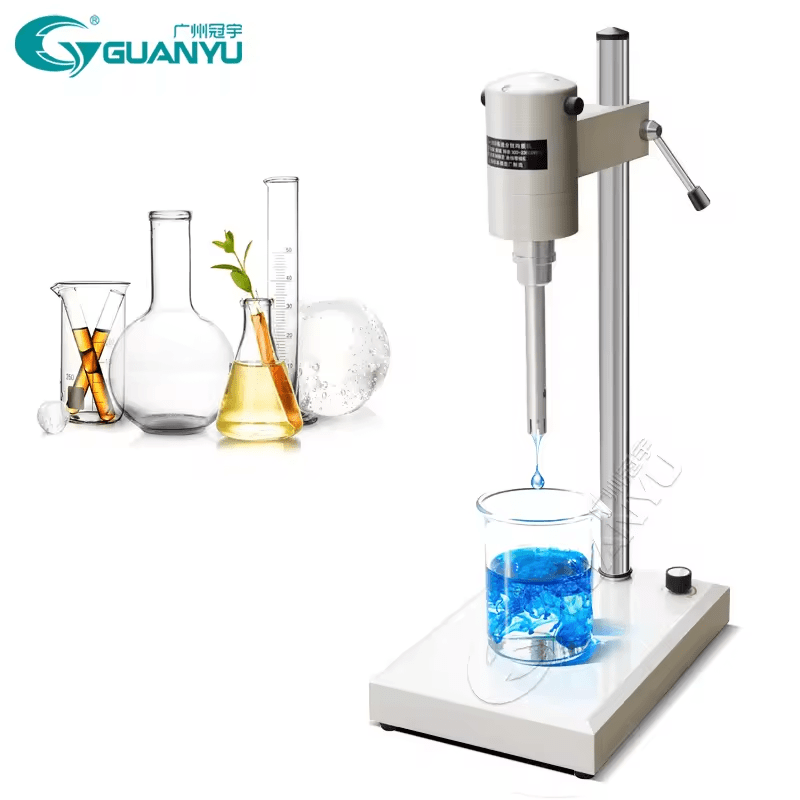Precision in Laboratory Processes
Small mixing homogenizer machines are integral in achieving precise results in laboratory processes. Precision is crucial when dealing with small sample volumes, where even slight deviations can significantly impact the outcomes. The adjustable speed controls available on these machines allow researchers to set the optimal speed for different substances, ensuring that the mixing process does not compromise the integrity of the samples. This level of control is particularly beneficial in experiments requiring delicate handling of biological cells or chemical compounds.
Compact Design and Portability
The compact design of small mixing homogenizer machines is another significant advantage. Laboratory space is often at a premium, and the small footprint of these machines allows them to fit comfortably even in the most constrained environments. Their portability means they can be easily moved between different workstations or labs, providing flexibility in their usage. This is particularly useful in multi-disciplinary research settings where equipment may need to be shared among different departments.
Introduction of small laboratory machinery
homogénéisateur


A laboratory pneumatic homogenizer is an essential tool designed for efficient and precise homogenization of samples in scientific research. Utilizing compressed air as its power source, this device ensures consistent performance with minimal maintenance, making it ideal for laboratories with diverse homogenization needs. The pneumatic homogenizer is particularly suited for applications in biology, chemistry, and pharmaceuticals, where it effectively breaks down and mixes samples to achieve uniform consistency.
This equipment features adjustable pressure settings, allowing researchers to tailor the homogenization process to the specific requirements of their samples. Its compact and robust design ensures durability and ease of use, while the absence of electrical components minimizes the risk of sparking, making it safe for use with flammable substances. Dans l'ensemble, the laboratory pneumatic homogenizer enhances the efficiency and accuracy of sample preparation, contributing significantly to reliable experimental outcomes.
5L Lab emulsifier


A 5L laboratory vacuum emulsifying mixer is an advanced piece of equipment designed for precise mixing, homogénéisation, and emulsifying processes in laboratory settings. Ideal for the pharmaceutical, cosmétique, and food industries, this machine operates under vacuum conditions to eliminate air bubbles, resulting in smooth and stable emulsions. Its 5-liter capacity makes it suitable for small to medium-sized batches, providing flexibility and efficiency in research and development. The machine features adjustable speed controls, a high-shear mixing head, and temperature regulation, ensuring consistent and reproducible results. Its compact design and ease of use make it a valuable asset in any laboratory, enhancing the quality and consistency of emulsified products.
50L MIXING BLENDER


Versatility Across Various Scientific Fields
The applications of small mixing homogenizer machines extend across multiple scientific disciplines. In biological research, these machines are essential for cell disruption and sample preparation, ensuring that cells are broken down uniformly without damaging their internal components. In chemistry labs, they are used to mix chemical solutions thoroughly, ensuring homogeneity and consistency in reactions. Pharmaceutical laboratories rely on these machines to achieve uniform mixtures in drug formulations, which is critical for the efficacy and safety of the final products.
Enhancing Workflow Efficiency
Workflow efficiency is a crucial factor in laboratory operations. Small mixing homogenizer machines contribute to this by significantly reducing the time required for sample preparation. Their rapid and efficient mixing capabilities mean that researchers can process multiple samples in a shorter time frame, increasing overall productivity. The automation features available in some models further streamline the process, allowing for continuous operation without the need for constant manual intervention.
Cost-Effectiveness and Maintenance
Investing in small mixing homogenizer machines is a cost-effective choice for laboratories. These machines are generally affordable and offer excellent value for money given their high precision and efficiency. De plus, they are designed to be user-friendly, with minimal maintenance requirements. This reduces the downtime associated with repairs and servicing, ensuring that the machines are always ready for use. The durability and reliability of these machines mean that they can serve laboratories effectively for many years, providing a good return on investment.
Advanced Technological Features
Adjustable Speed Controls
One of the standout features of small mixing homogenizer machines is the adjustable speed control. This feature allows researchers to fine-tune the speed to match the specific needs of their samples. Par exemple, fragile samples may require a slower speed to avoid damage, while more robust samples can be processed at higher speeds for quicker results. This adaptability makes the machines suitable for a wide range of applications and ensures optimal mixing efficiency.
User-Friendly Interface
Modern small mixing homogenizer machines are equipped with user-friendly interfaces that simplify their operation. Digital displays and touch controls provide intuitive navigation, making it easy for researchers to set parameters and monitor the mixing process. This ease of use reduces the learning curve associated with new equipment and ensures that even novice users can operate the machines effectively.
Safety Features
Safety is a paramount concern in laboratory environments. Small mixing homogenizer machines are designed with several safety features to protect both the user and the samples. These may include automatic shutoff mechanisms in case of overheating, secure locking systems to prevent accidental spillage, and protective covers to reduce the risk of injury during operation. These features ensure that the machines can be used safely even in high-paced laboratory settings.
Conclusion
Small mixing homogenizer machines are indispensable tools in modern laboratories, offering precision, efficacité, and versatility. Their ability to handle small volumes with high accuracy makes them ideal for a wide range of applications in biology, chemistry, and pharmaceuticals. With their compact design, user-friendly features, et rentable, these machines enhance workflow efficiency and contribute to more reliable experimental outcomes. As technology continues to advance, we can look forward to even more innovative features and applications for small mixing homogenizer machines in the future.

Hey guys, checked out 236bet1 last week. Pretty straightforward site, nothing too fancy. Had a couple of small wins, so can’t complain! Have a looksie 236bet1.